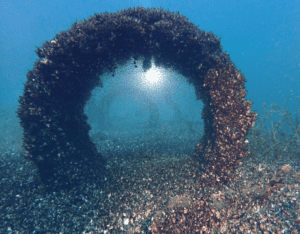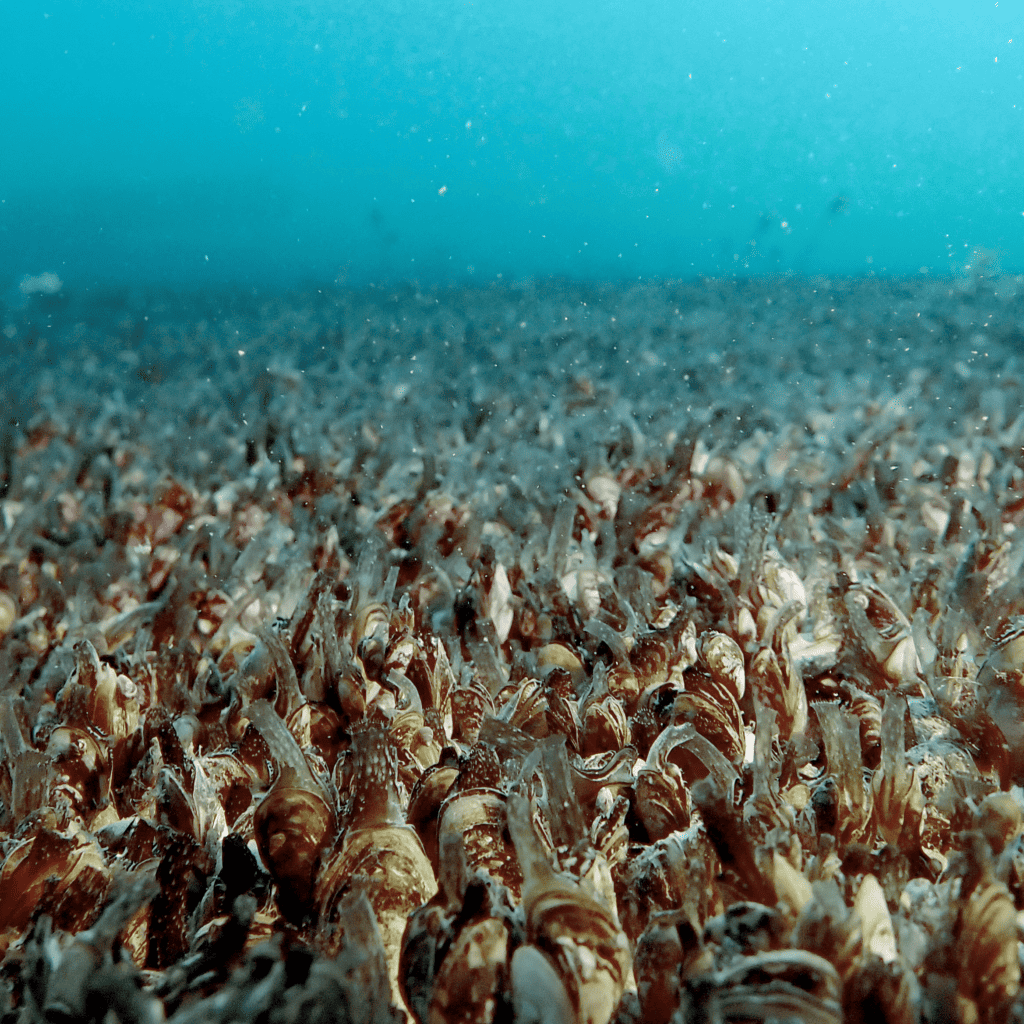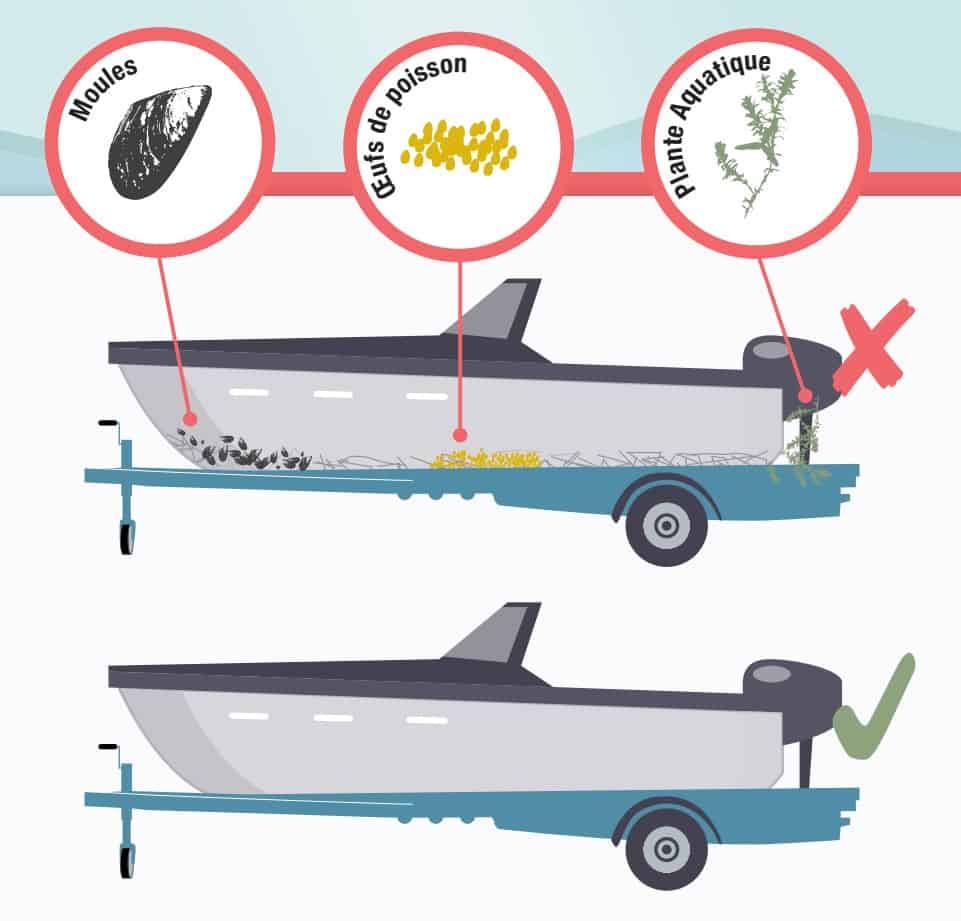Invasion of the quagga mussel in Lake Geneva: an ecological and economic challenge. Let's protect the untouched lakes!
The unbridled spread of the Quagga mussel in Lake Geneva is having significant consequences on its aquatic ecosystem and its users. Together with the other lake managers concerned, the International Commission for the Protection of Lake Geneva (CIPEL) is facing a major challenge. Their main objective is to prevent as far as possible the spread of this exotic mussel from lakes that have already been colonized to waters that are still preserved.. It is therefore imperative that boat owners and other lake users thoroughly clean their boats and equipment before using them on other lakes.
First discovered in Lake Geneva in 2015, this mussel originates from the Black Sea and was introduced by man via shipping. Considered one of the most aggressive invasive freshwater species in the northern hemisphere, the Quagga mussel(Dreissena bugensis) spreads rapidly and becomes extremely abundant once established. They are modifying lake ecosystems, with major consequences for biodiversity. They are also having a considerable impact on fishing, bathing, drinking water production and the thermal use of Lake Geneva.
The consequences for an ecosystem can be enormous. Densities of up to 15,000 individuals perm2 have been observed in Lake Geneva. Each mussel can filter up to 2 liters of water per day, in particular phytoplankton, which forms the basis of the lake food chain, thus disrupting the overall functioning of the lake.
The Quagga mussel is a major concern for drinking water producers and lake water heating systems. Not only do they clog pipes, but their tiny larvae are also able to penetrate installations, resulting in maintenance costs of several million francs a year for Lake Geneva. They colonize all substrates, such as boats and fishing nets, but also other aquatic organisms. Mussel shells also accumulate on the banks, posing a risk of injury to bathers.
The rapid spread of this invasive species represents a major challenge for all those involved in the Lake Geneva region. Once introduced, it is impossible to eradicate. The priority, therefore, is to do everything possible to ensure that unspoiled waters are protected as far as possible from the accidental introduction of this exotic species.
In addition to Lake Geneva, the Quagga mussel can be found in Lakes Constance, Neuchâtel, Biel, Murten, Hongrin and Lac du Bourget. Many lakes are still free of this invasive species, and we owe it to ourselves to protect them!
Quagga mussels are mainly introduced by man, via ballast water, bilge water or boat engine cooling water. Adult mussels also have the ability to attach themselves to boats and other nautical materials. Consequently, boat owners are the first to be concerned by preventive measures.
Here are some essential tips for those who plan to sail on more than one body of water:
- Clean the hull, engine, ropes, anchor, fenders, lifejackets, diving equipment, etc. with high pressure, or soak the equipment in a solution of vinegar (5%) or salt (1%) for 20 minutes;
- Drain ballast water before moving the boat;
- Dry boats and equipment and, if possible, wait at least five days before transferring them to another body of water.
CIPEL also reminds aquarists never to discharge animals, plants or aquarium wastewater into waterways (rivers, canals, lakes, floor grids) to avoid spreading new undesirable species.
For further information:
- Articles and recommendations from the Swiss Confederation: Articles and videos - Recommendations
- Information sheets on the Canton de Vaud website: link
- Awareness-raising video from the Swiss Federal Office for the Environment: Youtube link
- Information video by Youtubeur FabWildPix in collaboration with CIPEL: Youtube link

Photo credit: S. Jacquet










